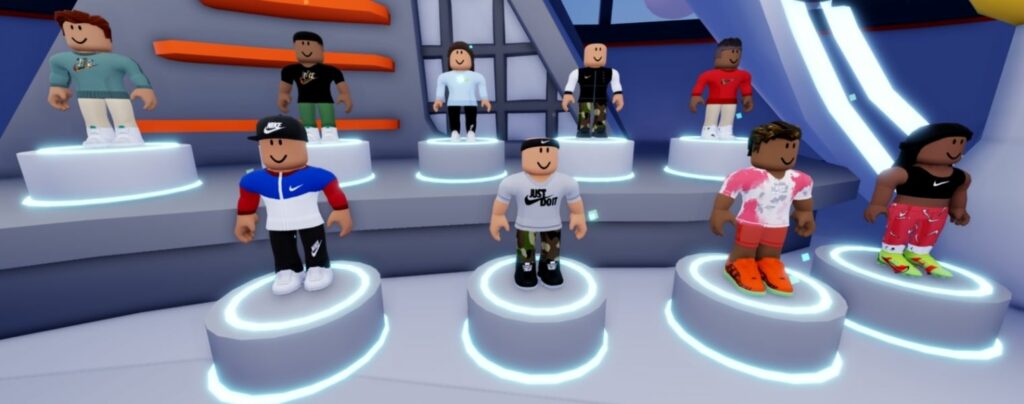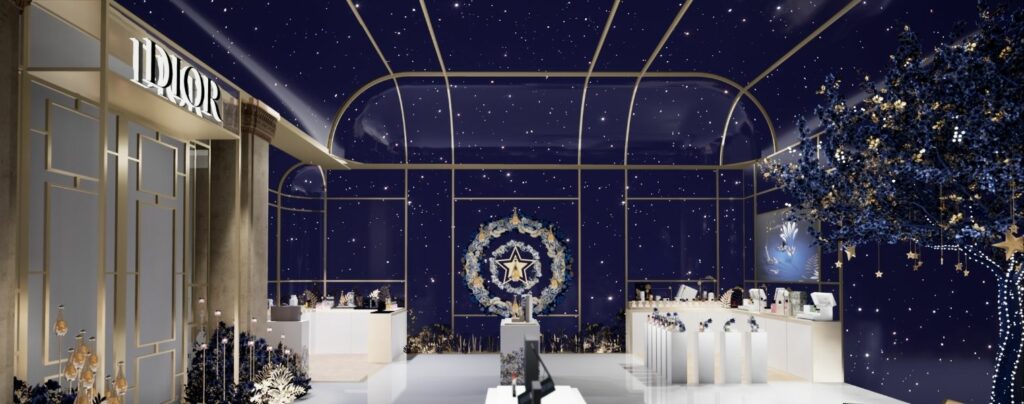We use cookies to improve your experience. By continuing to use this website you agree to our cookie policy.
What on earth is the Metaverse, and why are you seeing so much kerfuffle about it online? Depending on whom you ask — it’s the future of technology, a thinly-veiled marketing ploy for Facebook’s rebrand. Even a novel concept to bridge the gap between the virtual and real world. But let’s not get weighed down by the varying opinions about the Metaverse.
Instead, let’s discuss what it is and the impact the Metaverse means on VR. In this article, we’ll take a closer look at the Metaverse in its current form (whatever that is) and try to establish what it means to be in one.

What is the Metaverse?
Metaverse is defined as:
‘A virtual-reality space where users can interact with a computer-generated environment and other users.’
However, this is a little vague for our liking. For example, experiences within games such as Fortnite, like their Travis Scott event, could be considered a Metaverse(ish). Multiple users appear in a virtual setting as avatars, all sharing the same experience (in this case, a concert) — sounds a lot like the concept of a Metaverse. So it’s easy to see how the term and its meaning are confusing to many.
The Metaverse is a simulated digital environment that uses virtual reality (VR), augmented reality (AR), social media concepts, blockchain technology, eCommerce features and more. Bringing these types of technology together creates visually and physically-engaging experiences in highly-immersive environments that mimic the natural world and the interactions people have with one another.
And while Mark Zuckerberg may have rebranded Facebook as ‘Meta’ and is very much championing the concept of a Metaverse, it’s essential to understand that this is by no means a brand new idea. Many companies have been creating virtual, immersive environments for a while now. However, it’s something he clearly has much faith in and very much considers to be the “digital future” — despite Facebook losing up to $500 million since becoming Meta.
And although many may think the Metaverse idea is somewhat strange or unlikely to take off, it’s vital to recognise the impact and incredible variety of applications for VR technology. Who knows, in five or ten years, you may well be sat at work surrounded by colleagues, having a brilliantly productive conversation about your next project — but in reality (the real one), you’re at home in your pajamas with a VR headset on.
To answer the original question, ‘what is a Metaverse?’. A solid definition for right now would be a virtual version of the physical world that uses VR/AR technology to offer users a realistic and interactive experience.

What Does the Metaverse Mean for VR?
For the virtual reality (VR) industry, the Metaverse is a fascinating talking point that can revolutionize the industry. At the very least, it’s a massive motivation for the companies behind VR technology to produce devices capable of more complex applications and satisfying new customer expectations.
VR Technology Growth
Although the VR technology we use right now is incredible and beyond what many believed possible in 2022, the concepts discussed for future Metaverse(s) will require more advanced tech. Therefore, for VR in general, the Metaverse will likely lead to more investment and focus on what VR technology can offer on a broader scale, which is excellent news.
Virtual reality and augmented reality technologies already play a vital role in marketing, commerce, and other business activities. But as we have seen before, with the vast evolution of computers and other tech, there will always be new and exciting ways to implement technology into our daily lives. However, you will need VR technology to access the Metaverse, much like you need a computer or mobile device to access the internet. As the Metaverse concept grows and gains more momentum, so does the interest and need for VR technology.
Today, VR is an exciting technology that can provide everything from action-packed games to virtual shopping experiences. It could quickly become a necessity and device people use every day in the future. Who knows, future consumers may use VR technology more than their smartphones.

A Virtual Business World?
As we mentioned, Mark Zuckerberg is confident the future is a digital future, with a Metaverse offering the environment and capabilities to live within a digital space essentially. Well, not live, but spend a great deal of time if you want to. Yes, this seems a bit crazy, and meme culture had much fun with the Meta announcement — but it doesn’t mean he’s completely wrong.
Think about it. During lockdowns, many people worked remotely, with their primary form of contact with colleagues being Zoom calls. To their surprise, many businesses realized that they could work efficiently and productively in this way, with many companies now switching to a hybrid of office-based/WFH employment. Or even fully remote and cutting the costs of paying for office space. Now think about how VR could further bridge the gap between remote and ‘conventional’ office work.
With the technology available today, businesses could create virtual office environments for their teams to have ‘face-to-face’ meetings and, depending on the nature of the industry, actually do work in a VR world. People can already jump into VR experiences and watch videos together in various environments, so why not do the same for presentations, training, and other business activities?
If we are writing about this concept, and you’re reading about it, then it’s safe to say it has already been thought about by VR experts and may well be the future of working. However, we’re getting a little ahead of ourselves. Let’s bring it back to reality for a moment.
Enhanced Experiences Offered Current VR Specialists
One of the most exciting things about the Metaverse for Emperia and other companies who use VR technology is how it will advance VR as a whole and allow for more enhanced VR experiences. As it stands, the technology available offers a wealth of applications and has already demonstrated how it can be used in creative and groundbreaking ways. To learn more about how we use VR here at Emperia, check out the following pages of our website:
You’ll see how powerful and innovative VR can be from the experiences we have created in the fashion, retail and art industries, and we are just getting started. As we keep innovating and coming up with new technology, VR experiences will be bigger, better and more immersive than ever, offering users more engagement opportunities than ever before. The possibilities are endless and literally out of this world.
Take our Harrods collaborations as a great example. We used VR and AR technology to create realistic and immersive shopping environments that allowed potential customers to view products and even link to an eCommerce website. In the future, virtual reality technology may provide the platform for more extensive and interactive VR-based shopping experiences. Users could enter a virtual environment such as Harrods and browse products in-depth before buying, but they won’t have to do so alone.

With more advanced VR, you and a few friends could go shopping together, browsing products, visiting several stores, and all while having real-time conversations. And these are just potential applications within the retail world. When you consider the possibilities of enhanced VR for work-based communication, simulators, training, data visualization, construction and product design, well, it’s safe to say that VR and the Metaverse have more to offer the world than their entertainment value.
As with any new form of technology or wild concept that’s yet to be fully understood by modern audiences, the Metaverse still needs time to find its place. Regardless of whether the Metaverse is indeed the future of the digital age, it has revealed the value and adaptability of VR to a broader audience.
Do you want to find out more about how Emperia uses VR and AR technology to create immersive, interactive environments? Or use our VR technology for one of your own, upcoming projects? Get in touch today to discuss your requirements and have a chat with our innovative team.
